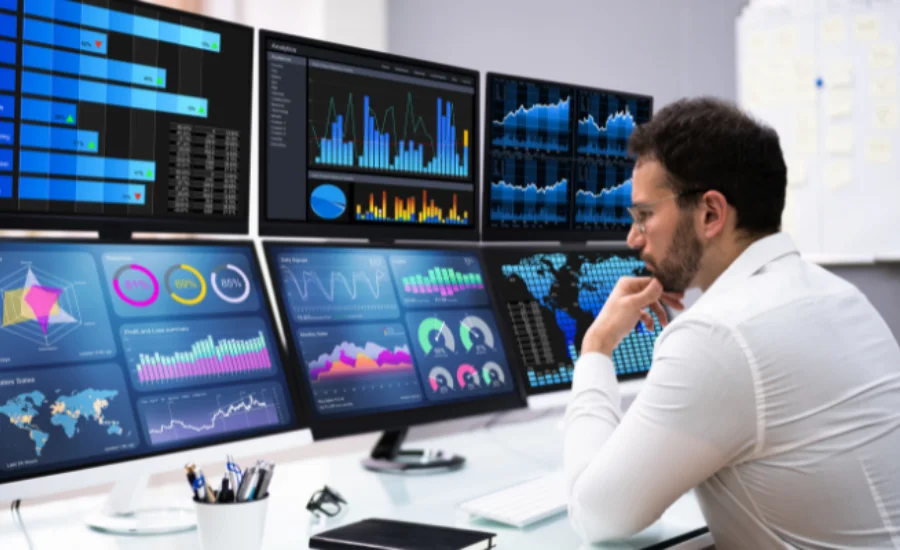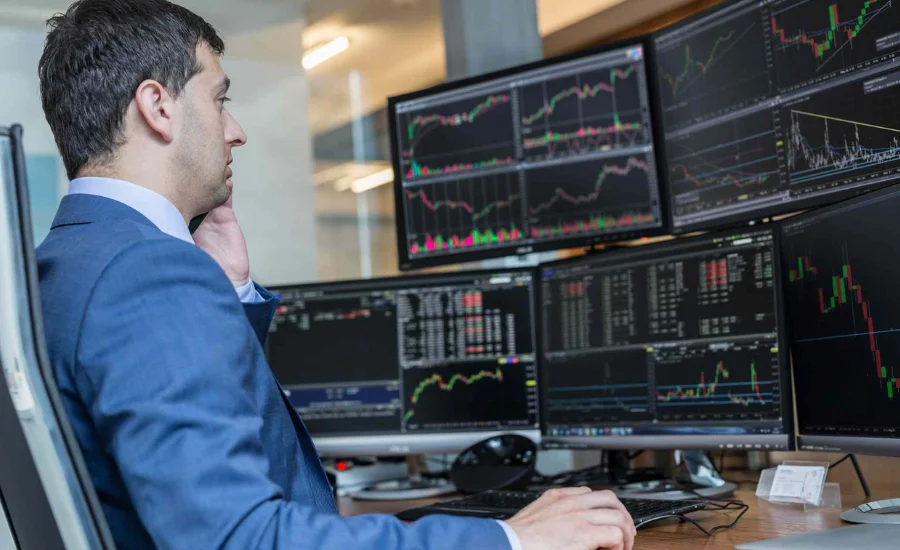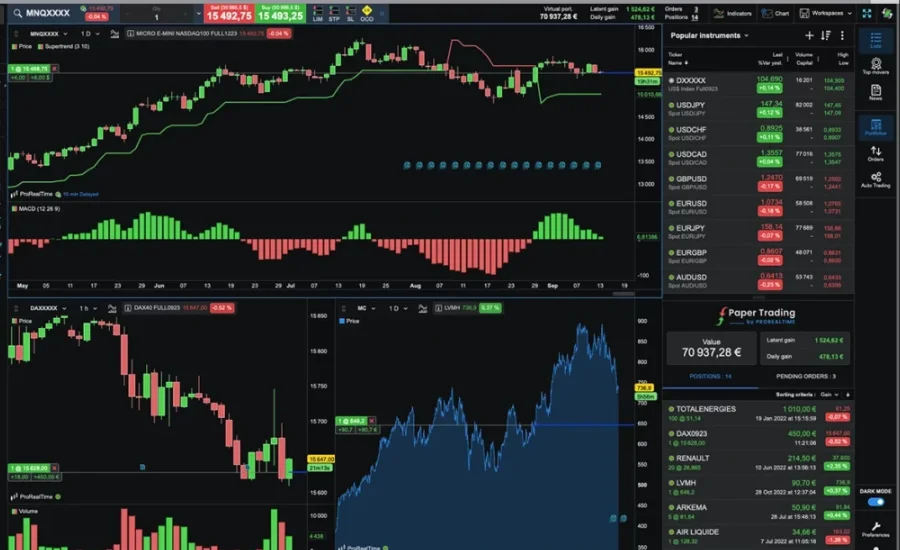Professional trading captures significant interest due to its potential for high financial rewards. However, the income of a Https://onlypc.net/cuanto-dinero-gana-un-trader-profesional can differ greatly based on a variety of key factors. In this article, we will delve into these factors to provide a clear and realistic overview of what Https://onlypc.net/cuanto-dinero-gana-un-trader-profesional might reasonably expect to earn in their careers.
Forms of Trading
Day Trading: Day traders focus on buying and selling financial assets within the same trading day. Their profits can fluctuate significantly, with some earning substantial amounts daily, while others may find it challenging to achieve consistent gains.
Swing Trading: Swing traders hold onto positions for several days or even weeks. This method of trading typically requires less time than day trading, yet it can still offer considerable profit potential, depending on the trader’s strategy and prevailing market conditions.
Long-Term Investing: This approach involves holding investments for months or even years. While it lacks the fast-paced nature of day or swing trading, long-term investing has the potential to yield significant returns over time, especially with a well-planned strategy.
Level of Expertise
Beginner Traders: New traders often encounter a steep learning curve, and consistent profits may take time to achieve. In the early stages, many beginners may experience losses as they work on building their skills, refining their strategies, and gaining a deeper understanding of the markets.
Experienced Traders: As traders gain experience, they tend to develop more effective strategies and a better grasp of market trends. This often results in improved performance and more consistent earnings.
Veteran Traders: Traders with extensive experience typically see the highest earnings. Their deep knowledge of the markets, honed over years of practice, allows them to make informed decisions that enhance their profitability and reduce risk.
Realities of Professional Trading

While professional trading undoubtedly presents opportunities for significant earnings, it’s essential to be aware of the accompanying risks and challenges. The trading industry is fiercely competitive and demands more than just basic market knowledge. Traders must possess a deep and nuanced understanding of market dynamics, excel in managing stress, and maintain a disciplined approach to risk management. The nature of trading means that many individuals will encounter periods of substantial losses, and consistent profitability is far from guaranteed.
Moreover, the path to becoming a successful Https://onlypc.net/cuanto-dinero-gana-un-trader-profesional is often long and demanding. It involves not only extensive education and training but also years of hands-on experience and continuous learning. Traders must navigate through their own mistakes and adapt their strategies in response to evolving market conditions. The journey can be fraught with difficulties, and perseverance is key.
Aspiring traders should approach the profession with a realistic outlook, recognizing that achieving long-term success requires more than just financial acumen. It involves a commitment to ongoing education, the resilience to handle market fluctuations, and the patience to see through the ups and downs of the trading landscape. Embracing this long-term perspective will better prepare individuals for the realities of the trading world and enhance their chances of building a successful career.
Investment Capital
The amount of capital a trader has at their disposal can significantly influence their earning potential. Traders with larger capital reserves can take on bigger positions, which may result in higher profits. However, this also comes with increased risk, as larger positions can amplify both gains and losses. Balancing capital and risk management is key to long-term success in trading.
Managing Risk
Successful traders recognize the critical role of risk management in preserving their capital. By utilizing stop-loss orders and carefully managing their exposure to risk, they protect their investments and increase their chances of sustaining long-term profitability. Effective risk management helps traders navigate the market’s volatility while minimizing potential losses.
Market Environment
Market volatility significantly impacts a trader’s potential earnings. High volatility can create substantial profit opportunities, but it also raises the risk of significant losses. On the other hand, stable market conditions may present fewer opportunities but often offer more predictable returns. Traders must adapt their strategies based on current market volatility to optimize their performance and manage risk effectively.
Typical Earnings of Https://onlypc.net/cuanto-dinero-gana-un-trader-profesional

Estimating the average earnings of Https://onlypc.net/cuanto-dinero-gana-un-trader-profesional can be complex due to the various factors influencing their income. However, general figures can offer some insight:
Institutional Traders: Those employed by financial institutions, such as banks or hedge funds, typically earn a base salary complemented by performance-based bonuses. Base salaries often range from $75,000 to $150,000 annually. Including bonuses, total compensation can reach several hundred thousand dollars, with top performers potentially earning millions.
Proprietary Traders: Proprietary traders, who trade using the firm’s capital, usually work on a profit-sharing model. They earn a percentage of the profits they generate, which typically ranges from 10% to 50%. This arrangement can result in substantial earnings, but income is highly variable and depends on individual trading performance.
Independent Traders: Independent traders, who trade their own funds, experience the most income variability. Earnings can range from $50,000 to $200,000 or more per year, depending on their capital and expertise. However, this group also faces periods of financial loss, which can affect overall earnings.
Top Earners: At the highest levels, some traders achieve extraordinary earnings. For instance, leading hedge fund managers and top proprietary traders can earn tens of millions or even billions of dollars annually. These top earners typically have extensive experience and a profound understanding of the markets.
Trading Approach
Different trading strategies can lead to varying results. Some traders focus on high-frequency trading, executing numerous small trades daily to capitalize on minor price movements. In contrast, others adopt a more selective approach, making fewer trades with the potential for larger gains. Each strategy has its own set of advantages and risks, and the effectiveness of a trading approach depends on the trader’s skill, market conditions, and overall goals.
Trading Location and Employment Status
Institutional Traders: Traders employed by financial institutions typically receive a steady salary along with performance bonuses, which can provide a stable income. Their compensation structure often includes a base salary combined with additional earnings based on their performance.
Independent Traders: Independent or retail traders depend solely on their trading profits, which can result in greater variability in their earnings. Their income is directly tied to their trading success, leading to potentially higher earnings but also greater financial fluctuations.
Income Range
Entry-Level Traders: At the start of their careers, traders typically earn between $50,000 and $100,000 per year. This range can vary significantly based on factors such as trading style, market conditions, and individual performance.
Mid-Level Traders: With several years of experience, traders can expect to earn between $100,000 and $500,000 annually. Their earnings are influenced by their expertise, strategy effectiveness, and market environment.
Top Traders: The top 10% of traders, especially those working with hedge funds or proprietary trading firms, can achieve annual earnings in the millions. Their high income reflects their advanced skills, successful strategies, and often their involvement in high-stakes trading environments.
Supplemental Income Sources

Many experienced traders enhance their income by engaging in additional activities. This can include offering trading education through courses, providing consulting services, or authoring books. These supplementary sources of income not only diversify their revenue streams but also leverage their expertise and reputation in the industry.
Challenges and Key Considerations
Emotional Resilience: Https://onlypc.net/cuanto-dinero-gana-un-trader-profesional involves more than just analyzing numbers; it requires strong emotional control. Successfully managing the stress of potential losses and maintaining discipline to adhere to a trading plan are essential for achieving long-term success.
Continuous Learning: As financial markets continuously evolve, traders must stay updated and adapt their strategies accordingly. Ongoing education and the ability to adjust to new techniques and market conditions are vital for maintaining a competitive edge.
Final Words
Professional trading offers the potential for significant financial rewards, but the income of a Https://onlypc.net/cuanto-dinero-gana-un-trader-profesional can vary widely. Factors such as trading style, level of expertise, capital, and market conditions all play crucial roles in determining earnings. While beginners may face a steep learning curve, experienced traders can achieve more consistent profits. However, trading is not without its challenges, including the need for emotional resilience and effective risk management. Aspiring traders should approach the profession with a realistic understanding of its demands and the importance of continuous learning to succeed in the competitive trading environment.
FAQs
What is the potential income for a professional trader?
The income of a professional trader can vary widely depending on factors like trading style, experience, capital, and market conditions. It can range from $50,000 to millions of dollars annually.
What types of trading can a professional trader engage in?
Professional traders can engage in day trading, swing trading, and long-term investing, each offering different levels of profit potential and time commitments.
How does the level of expertise affect a trader’s income?
Traders with more experience typically earn more as they develop effective strategies and a deeper understanding of the markets, leading to more consistent profits.
What challenges do professional traders face?
Professional traders face challenges such as market volatility, emotional stress, and the need for continuous learning to adapt to changing market conditions.
How important is risk management for professional traders?
Risk management is crucial for preserving capital and sustaining long-term profitability. Effective risk management helps traders minimize potential losses in volatile markets.
What impact does trading capital have on earnings?
The amount of capital a trader has can significantly impact their earnings. Larger capital reserves allow for bigger positions, potentially leading to higher profits but also increased risk.
What is the income range for entry-level traders?
Entry-level traders typically earn between $50,000 and $100,000 per year, with income varying based on factors like performance, trading style, and market conditions.
How do institutional traders differ from independent traders in terms of income?
Institutional traders often receive a steady salary with performance bonuses, while independent traders rely solely on their trading profits, leading to greater income variability.
Can traders supplement their income through other activities?
Yes, many experienced traders supplement their income by offering trading education, consulting services, or writing books, leveraging their expertise to diversify their revenue streams.
What factors contribute to the success of a professional trader?
Successful professional traders typically possess emotional resilience, effective risk management skills, and a commitment to continuous learning to stay competitive in the evolving market landscape.
Continue your exploration of this subject and more at Incredible Wave.

